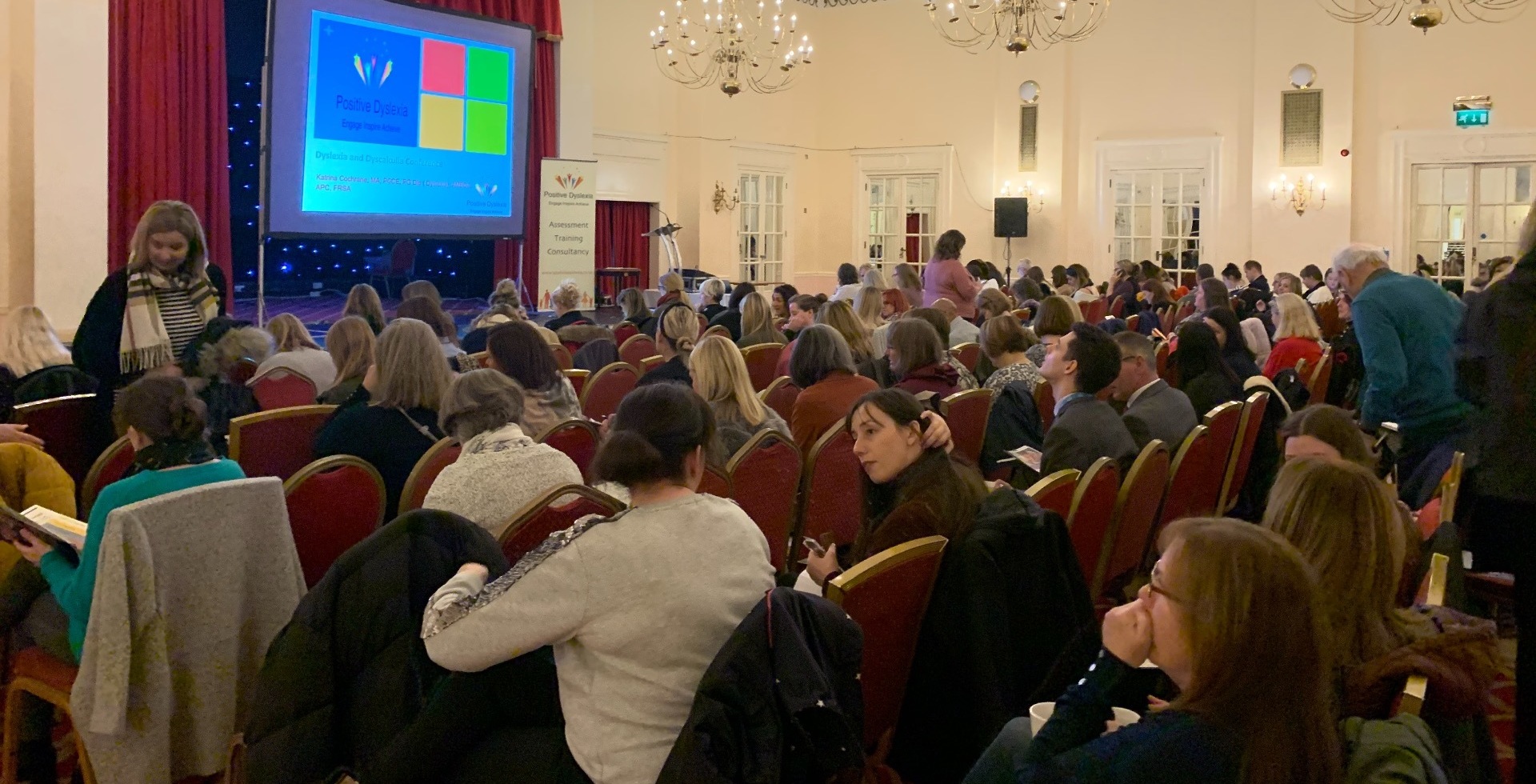5th Dyslexia Confererence Liverpool and our first London Conference
------------------------------------------------ London September 13th and Liverpool November 21st 2024 ------------------------------------------------
North or South - we have a conference to suit you!
We returned to Liverpool for our 4th Annual Dyslexia Conference!
November 23rd 2023 Adelphi Hotel , Liverpool
Thank you to everyone who attended this fantastic day! Our 2024 Conference will be announced shortly.
Read John Hicks latest blog on good quality CPD mentioning the Conference ! https://studyingwithdyslexiablog.co.uk/blog/as-a-senco-do-i-really-know-what-a-dyslexia-friendly-school-is-positive-dyslexia

The Positive Dyslexia and Edge Hill University Dyscalculia Conference - June 2023
Dyscalculia is something that has really come to the forefront of SpLD’s in the past few years. We may know what dyslexia is- but what is dyscalculia? According to the BDA , Dyscalculia is a specific and persistent difficulty in understanding numbers which can lead to a diverse range of difficulties with mathematics. It will be unexpected in relation to age, level of education and experience and occurs across all ages and abilities . With the increase in interest in dyscalculia , there are accredited courses for teachers and teaching assistants to become qualified in this important area. One such University is Edge Hill which offers postgraduate courses at both Level 5 and Level 7.
Because of this emergence of interest in dyscalculia, a recent joing conference was held by Katrina Cochrane of Positive Dyslexia and Edge Hill University. These two organisations bought together some of the most eminent academic speakers in this area, as well as practical workshops run by organisations such as the Dyscalculia Network.
Katrina Cochrane set up Positive Dyslexia in 2016 having been Head of Education for the BDA . She is passionate about raising awareness of both dyslexia and dyscalculia. She ensured that anyone attending the conference was in contact with the best people Best practice was modelled and the conference allowed practitioners to meet , look at the exhibitors stands, and pass on their new knowledge .
The conference was opened by Professor Jonathan Glazzard, Head of the Department for Children, Education, and Communities at Edge Hill University. He spoke eloquently about his own experiences struggling with mathematics at school, before he was diagnosed with dyscalculia. These experiences and struggles gave him a unique approach to supporting others with the same learning difficulties. He has been in the same position as them, so he was able to empathise and support them more effectively. Hearing this lived experience was a perfect start to the conference .
Following on from Professor Glazzard, Dr Kinga Morsanyi from Loughborough University gave her presentation on ‘Screening for Dyscalculia in the Classroom: Understanding Cognitive and Demographic Profiles, Co-Morbidities and Everyday Difficulties.’ She spoke about the difficulty of recognising dyscalculia in younger people, that even though it is a developmental condition, it should be apparent before children even start school. Many delegates when asked after, said that she provided extremely useful information that they will apply to their respective school settings.
The final keynote speaker was Rebecca Thompson, who’s session, titled, ‘Using the Woodcock Johnson IV to Assess for Dyscalculia’ was SASC ( Standards of Assessment in SpLD’s) accredited . As an assessor for dyslexia and dyscalculia, Thompson looked at the issues of working memory, processing speed, and visualisation in relation to maths. For people with dyscalculia, it is often the case that the information they are receiving when practicing maths is being taken in the short-term memory, but not being transferred into the long-term memory. Thompson suggested that schools should be testing phonological memory in maths assessments to counter-act this.
The innovation and originality in these speakers’ presentations were apparent but these sessions were not all the conference had to offer, however. As well as multiple exhibitors from a range of organisations relating to dyslexia and dyscalculia, there were also workshops held in the latter part of the conference. For example, Pete Jarrett from Tutorum held a workshop on supporting adults with learning difficulties in education and the workplace. Pete is Chair of the Dyscalculia Committee for the BDA which has been instrumental in moving awareness about dyscalculia forward.
It is often easy to focus on the struggles of children with dyscalculia, because they are within an education setting and have to interact with mathematics and numbers on a regular basis. However many adults in the workplace continue to struggle. Most of the time, organisations do not have the same assessments in place that schools do for children and Pete has worked tirelessly to improve support for adults.
While these workshops were taking place, a young boy called Will, who was supporting his mother at the conference came forward with his own story which he told with confidence . Will and his mother, Bridget, create illustrated maths story books for children inspired by Will’s own struggles with dyscalculia ( Billy Bees) . Bridget is also experienced as a teacher with children with learning difficulties. These books provide a different and revolutionary way of teaching maths that ensure more engagement with students that struggle with it.
Will highlighted the pressure he faces when being told to ‘hurry up’ by teachers, as he felt like there were ‘little fires’ in his head that made him lose focus. Will showed how he has been overcome many of his difficulties and use his talents to help others with his books. Katrina Cochrane from Positive Dyslexia said that ‘ Children like Will show that a specific learning difficulty like dyscalculia is no barrier to success but we still need to do more to raise awareness of something that affects so many children in each classroom’.
Overall, this exciting day highlighted the high demand for conferences like these because they help so many people with difficulties in their everyday school and work lives. Their next conference is in Cardiff and will be addressing the language difficulties, dyslexic children have when bilingual in both English and Welsh . In November they are back in Liverpool for their 4th Dyslexia Conference at the Adelphi.
Written by:
- Francesca Stevenson, writer and recent graduate from Liverpool Hope University
- Katrina Cochrane, owner Positive Dyslexia Ltd








